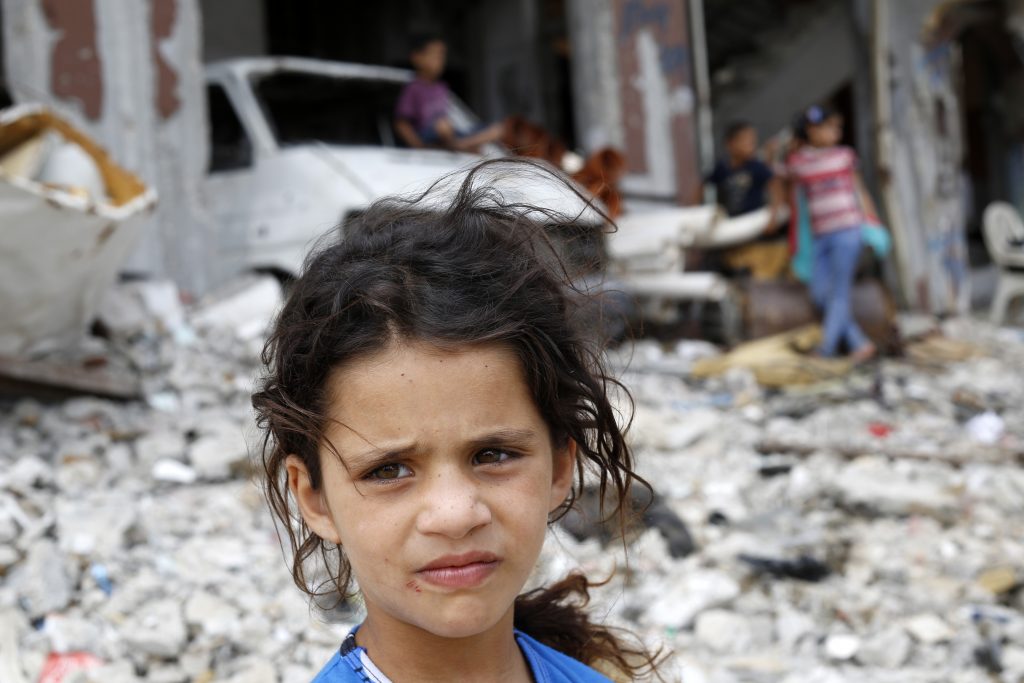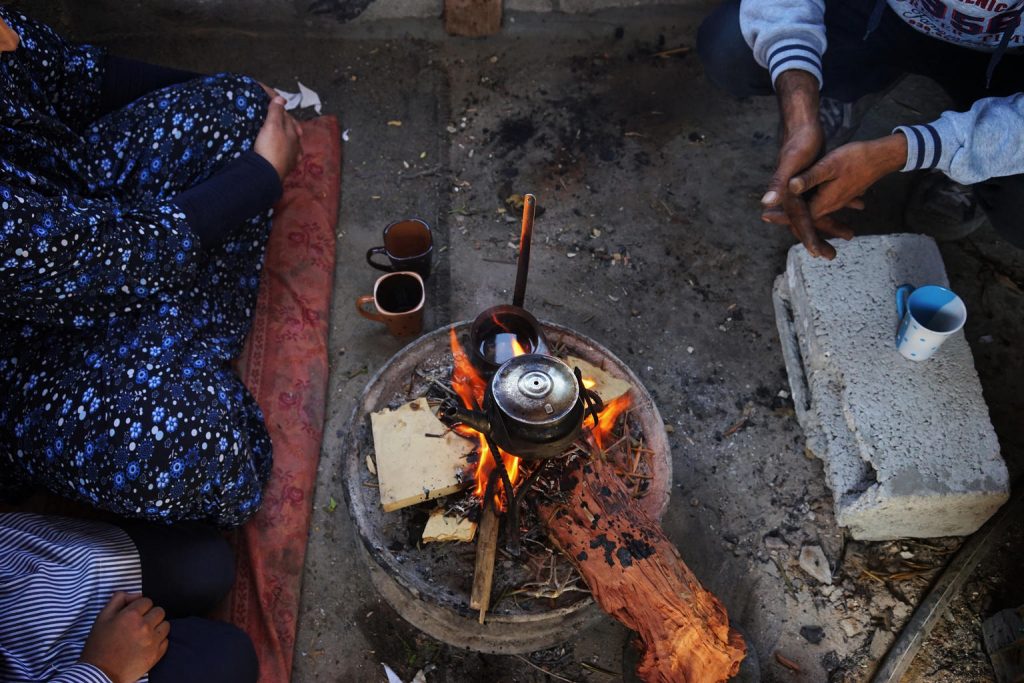1. Extreme Poverty – 1.2 Million Children on the Edge
The State of Palestine is experiencing a long-term humanitarian crisis. The political situation, an ongoing financial crisis, the continuing violence and COVID -19, has left 1.2 million children in real need.
These children are experiencing lives of deprivation, violence and poverty. In the Gaza Strip, 1 million children have limited or no access to essential services, while At least 500,000 children have limited access clean drinking water.
Lack of access to clean water has particularly increased the burdens on women and girls, as they must sacrifice education to fetch water for their family.

Even before the events of the past weeks, the growing medical needs in Palestine had been overwhelming the healthcare system. Now the dual burdens of recent conflicts and COVID-19 threatens to tip them over.
With life a daily struggle, it should perhaps come as no surprise, that education is also heavily impacted. Nearly 489,000 children are not receiving an adequate level of schooling.
Even before the recent surge in violence, the daily life for children in Palestine was extremely difficult. With limited access to essential services, little hope for the future, and a daily life of struggle, there seemed little way for the situation to worsen. But it has.
COVID-19 and the escalating violence has put Palestinian children in ever worsening danger. Without support, many of these children could die.
2. COVID 19 – Increased Deprivation.
To make matter worse, the COVID-19 pandemic has been devastating for Palestinians. This is especially true in vulnerable areas such as East Jerusalem, H2 in Hebron and the West Bank’s Area C.
With weakened immune systems, a lack of clean water and a lack of space to isolate within, COVID -19 has been particular dangerous for Palestinians. As of September 2020, more than 47,000 COVID-19 cases have been confirmed
The health system is not prepared to deal with the disease, with medical supplies like oxygen already hard to come by. Right now, more than 750,000 people need humanitarian aid due to COVID -19.
Beyond the threat of the disease itself, the impact of COVID on Palestinians has been dire. Lockdowns, restrictions and anti COVID measures have had a lasting impact on Palestinians. Before the outbreak, around one quarter of Palestinians lived below the poverty line. This included 53 per cent of the population in the Gaza Strip and 14 per cent of the population of the West Bank.
According to early estimates this has grown rapidly during the pandemic. The proportion of poor households has increased to 64% in the Gaza Strip and 30% in the West Bank.
COVID-19 has served to make the situation Palestinians much worse in a very real way.
3. Limited Access to Power
The closure of the Gaza Strip to restricted items has meant essential goods, including fuel, are scarce.
Fuel is in such short supply, that the Gaza Strip’s only power plant can only run at certain times of the day. At other times there is no electricity on the Strip apart from that generated by diesel motors.

This crisis affects all aspects of life, including cooking, bathing and daily drinking water. It also makes it impossible to operate the local water and sanitation system. This can result in congestion, and the spreading of diseases.
The frequent power outages are also a major concern for the healthcare system. This is especially true for the already overburdened hospitals and quarantine centres. Here electricity is needed to contain the spread of COVID-19 and run incubators in neonatal wards.
The lack of consistent electricity makes both the water and health system dependent on diesel generators. These are expensive to run, and fuel is hard to source. Attempts at providing energy via renewable sources are hampered by the materials being restricted. This has led to a vicious cycle with the most vulnerable caught in its centre.
With parts and equipment to fix these machines also on the restricted list. The power situation in Palestine grows ever more desperate.
4. What UNICEF is doing
UNICEF teams are on the ground right now providing life-saving assistance to Palestinian children. This includes, providing 1,500 children under the age of 5 with treatment for severe acute malnutrition. Helping over 440,000 women and children access health care. Giving 100,000 people access to safe water for drinking, cooking and hygiene purposes.
We provide much-needed fuel to help power the electricity grid. We also work to ensure children receive access to education and are protected from exploitation.
UNICEF continues to support essential health care services during the COVID-19 pandemic. This includes providing PPE for health workers, as well as vaccines and essential medical supplies.
But we know we need to do more, and our funding is tighter than ever. Measures to combat COVID 19 have seen our funding requirement rise by 25%.
Please donate today and help Palestinian children. They need your help now more than ever.

